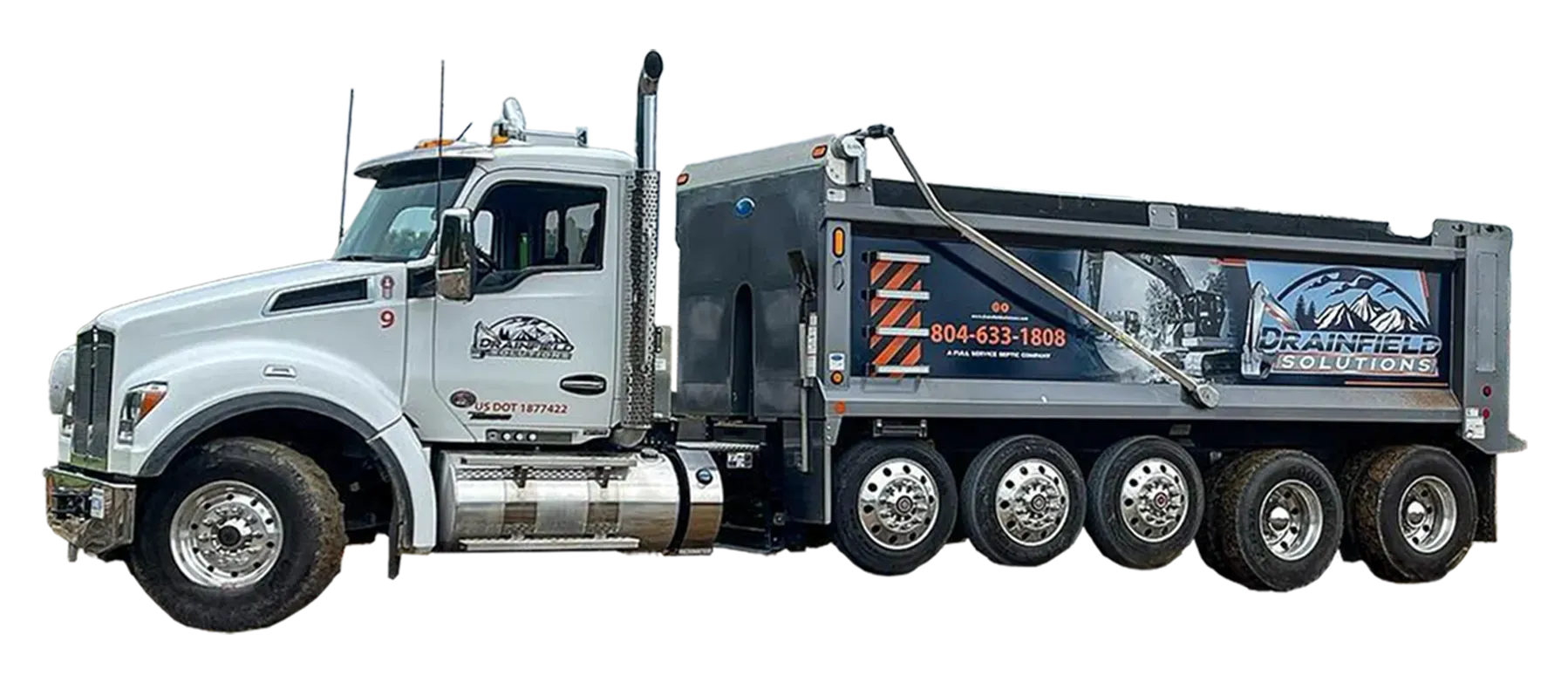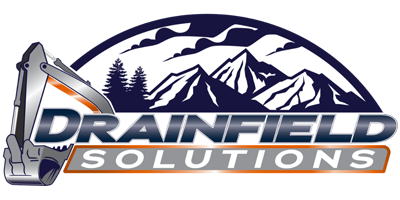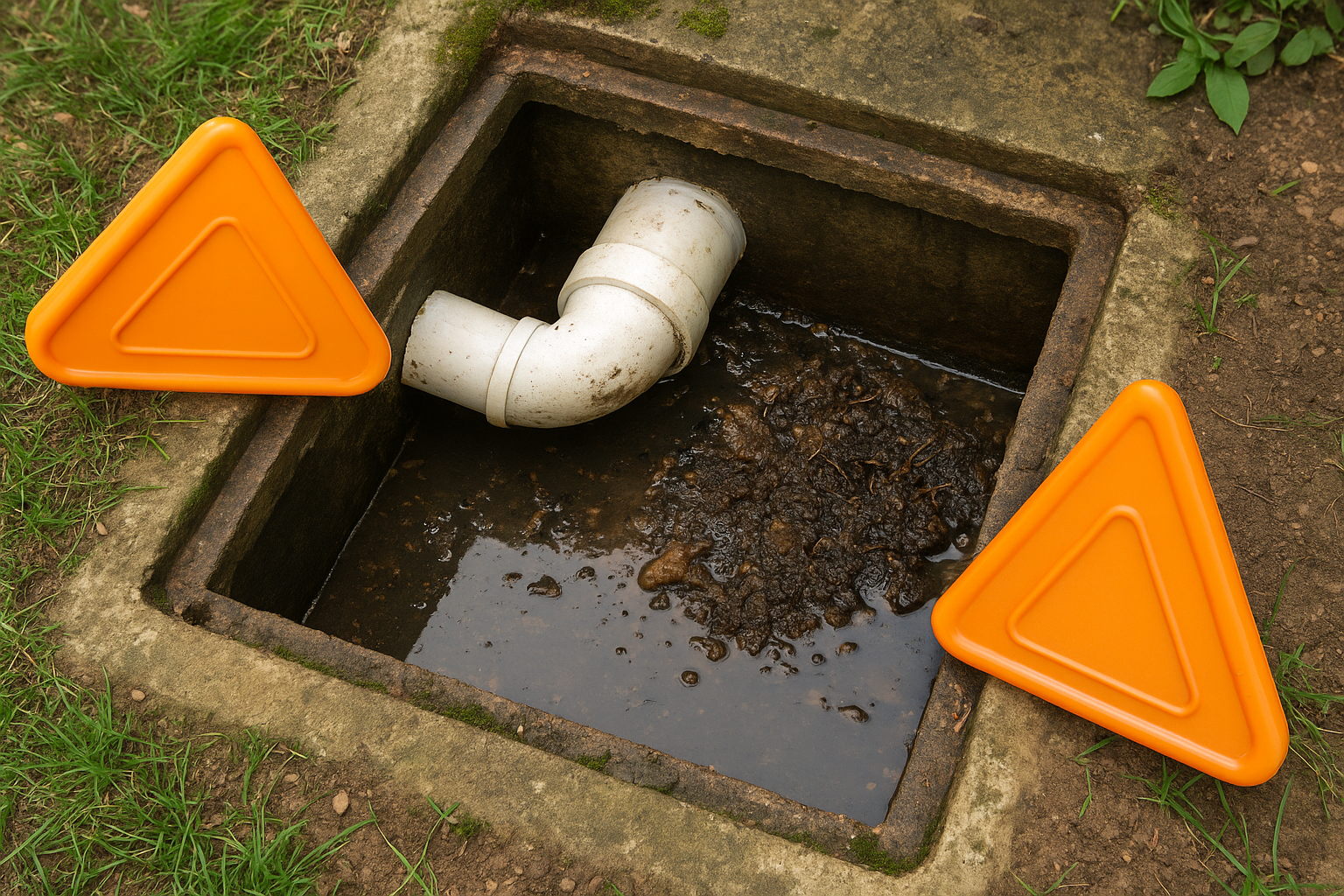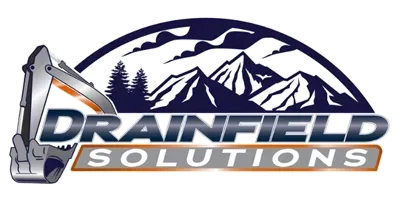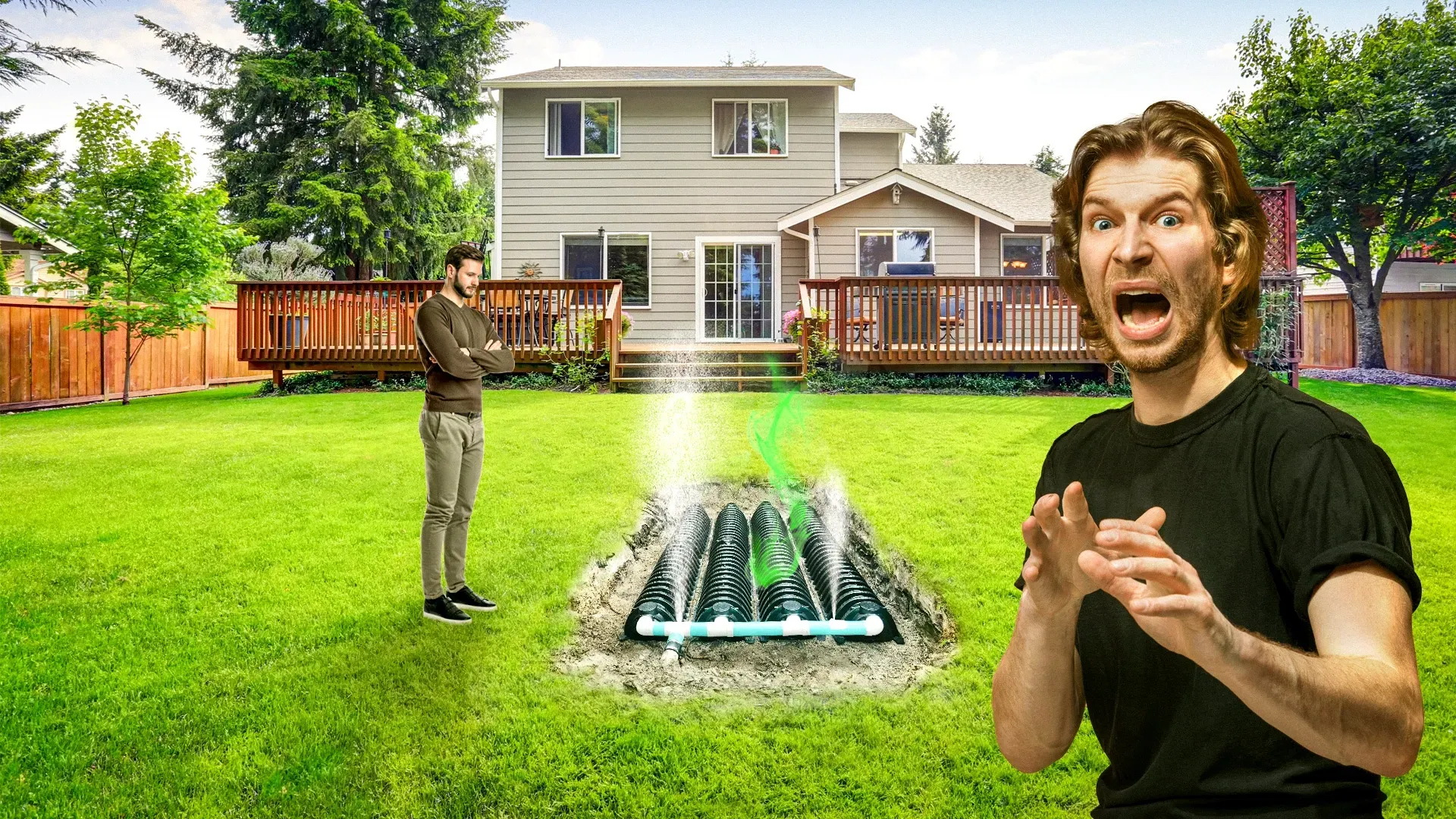
6 Key Warning Signs That Your Drain field Is Failing!
November 7, 2024
Your septic system’s drain field, or leach field, plays a crucial role in filtering and dispersing wastewater, but like any system, it can encounter problems over time. A failing drain field can lead to unpleasant odors, sewage backups, and even environmental contamination. Knowing the signs of a failing drain field is essential for taking action before the damage becomes severe. Here’s an in-depth look at the warning signs that your drain field may be failing and what you can do about it.
1. Slow Drains Throughout the House
One of the most common signs of a failing drain field is slow drainage in your home. If multiple drains, such as sinks, toilets, and showers, are all draining slowly, it could indicate that your drain field is no longer able to absorb wastewater efficiently. While a clogged pipe could be the culprit, slow drains throughout the house often point to a more serious issue with the septic system.
When a drain field is overloaded or saturated, the effluent has nowhere to go, causing backups in your plumbing. If you notice slow drainage, it’s important to call a septic system professional to inspect your system and identify the root cause.
2. Foul Odors Near the Septic Tank or Drain Field
Unpleasant odors are another telltale sign that your drain field may be failing. If you smell sewage or a strong, rotten egg-like odor (often caused by hydrogen sulfide gas) near your septic tank or drain field, it’s a sign that wastewater is not being properly treated and dispersed.
When a drain field fails, untreated effluent can rise to the surface or seep out of the septic system, causing foul smells that can linger around your property. These odors not only signal a serious problem but also pose a health hazard to you and your family. If you detect any unusual smells, it’s critical to contact a septic system professional as soon as possible.
3. Patches of Lush, Green Grass
While it may seem counterintuitive, patches of lush, green grass over your drain field can be a warning sign of a problem. These green areas often indicate that wastewater is surfacing and acting as a fertilizer for the grass. This typically happens when the drain field becomes oversaturated or clogged, preventing the effluent from percolating through the soil as it should.
While a healthy lawn is desirable, rapid grass growth over the drain field suggests that the system is leaking or not absorbing wastewater efficiently. If you notice unusually green patches of grass in the drain field area, it’s important to investigate further.
4. Standing Water or Puddles Near the Drain Field
One of the most serious signs of a failing drain field is standing water or puddles in your yard, especially near the septic system. When the drain field is no longer able to absorb wastewater, the excess liquid can rise to the surface, creating soggy areas or pools of water.
Standing water not only indicates that the drain field is oversaturated but also poses a health risk, as untreated wastewater can contain harmful bacteria, viruses, and pathogens. If you see standing water near your drain field, it’s essential to stop using water in your home and contact a septic professional immediately to assess the situation.
5. Gurgling Sounds in Plumbing
Unusual gurgling sounds coming from your plumbing can indicate that there’s a problem with the septic system, particularly the drain field. These sounds often occur when air is trapped in the pipes due to a clog or backup in the system. As wastewater struggles to move through the pipes and into the drain field, it creates air bubbles that result in gurgling noises.
While occasional gurgling sounds may not be cause for alarm, persistent or widespread gurgling could indicate a more serious issue with your drain field. If you hear gurgling sounds in multiple areas of your home, it’s best to have your septic system inspected by a professional.
6. Frequent Septic Tank Pumping
If you find yourself needing to pump your septic tank more frequently than usual, it could be a sign that your drain field is no longer functioning properly. When the drain field becomes clogged or saturated, the wastewater remains in the septic tank, causing it to fill up more quickly.
Frequent pumping may temporarily alleviate the symptoms, but it’s not a long-term solution to a failing drain field. If you’re having to pump your tank every few months instead of every 3-5 years, it’s time to investigate whether your drain field is the underlying issue.
Causes of Drain Field Failure
Understanding what causes drain field failure can help you take preventive measures to avoid costly repairs or system replacement. Some common causes of drain field failure include:
1. Overloading the System:
Excessive water usage, such as running multiple appliances at once or using large amounts of water in a short period, can overload the drain field. This can prevent the system from properly absorbing and filtering wastewater.
2. Compacted Soil:
Driving vehicles or heavy machinery over the drain field can compact the soil, reducing its ability to absorb water. Compacted soil can also lead to pipe damage, which affects the distribution of effluent.
3. Poor Maintenance:
Neglecting routine septic tank pumping and septic tank inspections can lead to solids entering the drain field, clogging the pipes, and preventing the system from working efficiently.
4. Tree Roots:
Tree roots can invade the drain field, causing blockages or damage to the pipes. This can disrupt the flow of wastewater and lead to system failure.
5. Incompatible Soil:
Certain soil types, such as clay, have poor drainage properties. Installing a septic system in an area with incompatible soil can increase the risk of drain field failure.
What to Do if Your Drain Field is Failing
If you notice any of the warning signs mentioned above, it’s important to take action quickly to prevent further damage. Here’s what you can do if you suspect your drain field is failing:
1. Reduce Water Usage:
Minimize the amount of water entering your septic system by limiting laundry, showers, and dishwashing. This will help reduce the load on the drainfield.
2. Call a Septic System Professional:
Contact a licensed septic professional to inspect your septic system and assess the severity of the problem. They will be able to determine whether the issue can be repaired or if the drain field needs to be replaced.
3. Avoid Driving Over the Drain Field:
If possible, keep vehicles and heavy equipment away from the drain field to prevent further soil compaction or damage to the pipes.
In some cases, a failing drain field may be repairable through techniques such as jetting, which involves flushing out the pipes to remove clogs, or bio-remediation, which uses bacteria to break down organic matter in the soil. However, if the damage is extensive, you may need to install a new drain field or explore alternative wastewater treatment options.
Conclusion
Recognizing the signs of a failing drain field is essential for maintaining the health of your septic system and avoiding costly repairs. Slow drains, foul odors, standing water, and frequent pumping are all red flags that should prompt immediate action. By staying vigilant and addressing problems early, you can extend the life of your septic system and protect your property from damage.
At Drainfield Solutions in Central Virginia, we know the critical role a well-maintained septic system plays in your home's and the environment's health. Our dedicated team of professionals is here to ensure your system in Tappahannock, Warsaw, Aylett, Culpepper, Fredericksburg, Mechanicsville, or Stafford, receives the expert care it needs to operate efficiently and comply with all Virginia state regulations. Whether it's routine septic tank pumping, detailed septic tank inspections, or septic system maintenance, we are committed to helping you avoid expensive repairs and prolong the life of your septic system.
Regular septic tank maintenance
can prevent future problems and keep your home safe, clean, and running smoothly. If you're ready to schedule your septic system service or have questions about your system, visit our
contact page
to
schedule an appointment
with us today or by calling
804-633-1808. We're here to help homeowners throughout
Central Virginia maintain reliable and effective septic systems.
Share Post
Latest Posts
Ready to Take the Next Step?
Whether you're in need of a system inspection or regular maintenance, Drainfield Solutions is here to help. Get in touch today for reliable service you can trust.
